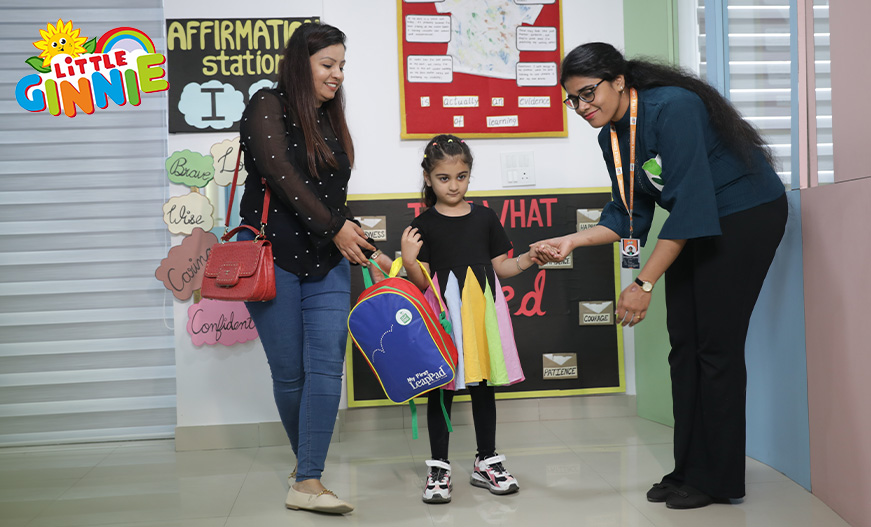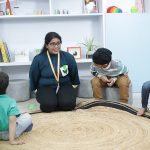
Are you ready to undertake an exciting new journey with your toddler? Stepping into a play school for the first time can be an adventure filled with discoveries and friendships waiting to be made. As you prepare to take this significant leap, have you ever wondered how your little one will thrive in a stimulating environment beyond the walls of your home?
Are you curious about the numerous opportunities for social interaction, exploration, and learning through play await your child? Join us as we delve into a comprehensive guide to help navigate this thrilling transition and ensure a smooth introduction to play school.
Understanding Your Toddler’s Developmental Stage
Toddlers, typically between the ages of 1 and 3, are experiencing rapid cognitive, social, and emotional development. Here are some key characteristics to consider:
- Separation Anxiety
- Parallel Play
- Egocentric Thinking
Separation anxiety is a common concern for toddlers. They may feel insecure and clingy when separated from familiar caregivers.
Around the age of 2, toddlers often engage in parallel play, where they play alongside other children rather than directly interacting with them.
Toddlers see the world from their perspective and may struggle to share or take turns.
Preparing Your Toddler for Play School
1. Start Early Conversations
- Talk positively about play school and the fun activities your child will experience.
- Read books or watch videos about preschool routines to familiarize your child with the concept.
- Encourage imaginative play at home, mimicking activities they might encounter at play schools, such as singing songs or building with blocks.
2. Adopt Practice Makes Perfect
- Role-play saying goodbye at home. Practice waving and giving hugs, reassuring your child that you’ll be back to pick them up.
- Short separations can be helpful. Start with brief drop-offs at a trusted friend or family member’s house to gradually increase your child’s comfort with being apart from you.
3. The Power of Familiarity
- Schedule a visit to the play school beforehand.
- This allows your child to explore the environment, meet the teachers, and feel more at ease on their first day.
- Pack a familiar comfort object from home, such as a favorite stuffed animal or blanket, to provide security.
4. Setting Expectations
- Be honest and upfront with your child about the duration of their stay at play schools. Avoid making unrealistic promises about how quickly you’ll return.
- A goodbye routine can be calming. Establish a short ritual, such as a hug and a kiss, to signal the start of their time at play school.
The First Day and Beyond
- Dress for Success
- Pack Essentials
- Separation is Okay
- Positive Reinforcement
Choose comfortable clothes that are easy for your child to manage independently (think pull-on pants and shoes with Velcro closures).
Label a backpack or bag with your child’s name and pack a healthy snack, a water bottle, and a change of clothes.
It’s normal for toddlers to cry or cling to you during drop-off. Offer reassurance, stay calm, and trust the teachers to handle the situation.
Upon picking your child up, focus on the positive aspects of their day. Ask them about their enjoyable activities and praise their bravery in attending play school.
Addressing Separation Anxiety
Separation anxiety is a natural developmental stage, and it can take time for your toddler to adjust to play school. Here are some tips to manage it:
- Maintain Consistency
- Open Communication
- Be Patient
Stick to a predictable routine for drop-offs and pick-ups.
Talk to your child’s teacher about their separation anxiety and work together to develop strategies.
There may be setbacks. Remain patient and loving; eventually, your child will feel more comfortable in the play school environment.
Major Benefits of Play School
While there may be initial challenges, the long-term benefits of play school are numerous:
- 1. Social Development
- 2. Cognitive Development
- 3. Emotional Development
- 4. Preparation for Preschool
Playschool provides opportunities for toddlers to interact with peers, develop communication skills, and learn to share and cooperate.
Playschool exposes toddlers to new experiences that stimulate their cognitive development through play-based learning activities.
Playschool helps toddlers learn to manage emotions, express themselves effectively, and build self-confidence.
Playschool experiences ease the transition to a more structured preschool environment later on.
Finding the Right Play School
- Consider your child’s individual needs and temperament.
- Research different play-school options in your area.
- Look for programs prioritizing play-based learning, offering qualified and nurturing teachers, and maintaining a safe and stimulating environment.
- Schedule visits to potential play schools to observe the classroom dynamic and interact with the teachers.
Additional Tips to Consider When Choosing a Play School
- Class Size and Teacher-to-Child Ratio
- Curriculum and Play Philosophy
- Safety and Security
Smaller class sizes and lower teacher-to-child ratios allow for more individualized attention and support for your child.
Look for a play school that emphasizes play-based learning, incorporating activities that cater to your child’s developmental stage and interests.
Ensure the play school prioritizes safety with appropriate supervision, clean facilities, and age-appropriate equipment.
FAQ – Frequently Asked Questions
- At what age should I enroll my toddler in play school?
- What if my toddler cries during drop-off?
- How much does play school cost?
There is no one-size-fits-all answer. Some toddlers may benefit from play school as early as 18 months, while others may be more comfortable starting closer to age 3. Consider your child’s temperament and readiness for separation.
Separation anxiety is normal. Our experienced teachers are equipped to handle tears and create a welcoming environment for your child. Focus on the positive aspects of play school and maintain a consistent routine to help your child adjust.
Costs can vary depending on the program, location, and enrollment duration. Many employers offer childcare assistance benefits, and government subsidies may be available for qualifying families. Research your options to find a program that aligns with your budget.
Remember, starting play school is a big step for both you and your child. By planning, creating a positive experience, and choosing a play school that prioritizes your child’s needs, you can set them on the path to a successful and enriching learning journey.
We hope this blog post has empowered you to feel confident about introducing your toddler to play school. For more information on child development and play-based learning activities, explore our website or reach out to our friendly staff at Little Ginnie. We are here to support you and your child every step of the way!












